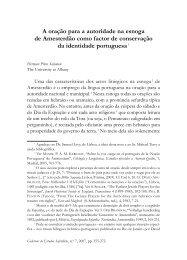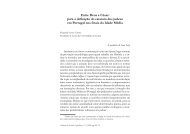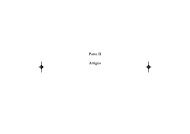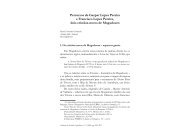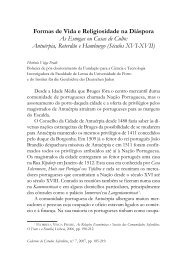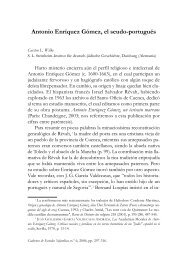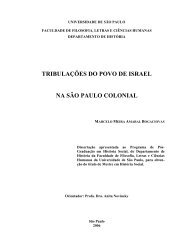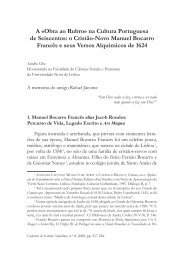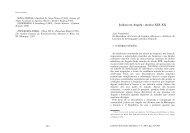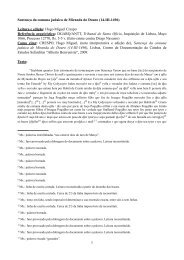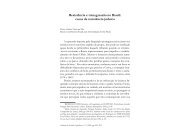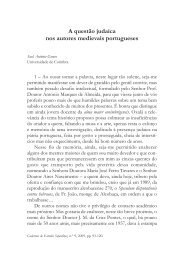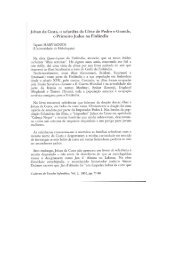Pagina 1-28.qxd - Cátedra de Estudos Sefarditas "Alberto Benveniste"
Pagina 1-28.qxd - Cátedra de Estudos Sefarditas "Alberto Benveniste"
Pagina 1-28.qxd - Cátedra de Estudos Sefarditas "Alberto Benveniste"
Create successful ePaper yourself
Turn your PDF publications into a flip-book with our unique Google optimized e-Paper software.
Pag 33-62:<strong>Pagina</strong> 1-<strong>28.qxd</strong> 10-12-2009 01:13 Page 58<br />
FRançOIS SOyeR<br />
however, the grant of Ineffabilis et Summi served an extremely useful<br />
purpose. It nullified any advantage that the Castilians and ara go -<br />
nese might have hoped to hold over Portugal in any future negotiations<br />
relating to territories in north africa with their own version<br />
of Ineffabilis et Summi.<br />
taking into account these facts, it is easier to attempt to un<strong>de</strong>rstand<br />
the reasoning that probably informed Manuel’s <strong>de</strong>cision to<br />
expel the Muslim minority from Portugal. this expulsion only<br />
makes sense if it was envisaged by Manuel to be an act of political<br />
propaganda, <strong>de</strong>signed to make an impression on the Papacy as well<br />
as other Christian rulers. It was the action of a king whose <strong>de</strong>sire to<br />
portray himself as a champion of Christendom was stimulated<br />
both by his obsession with the struggle against Islam and his anxiety<br />
regarding competing Spanish claims in north africa. King<br />
Manuel consciously played on his image as an ar<strong>de</strong>nt and enthusiastic<br />
crusa<strong>de</strong>r in the letters he sent to Rome. Such propaganda would<br />
continue to play a central role throughout the rest of Manuel’s<br />
reign. In<strong>de</strong>ed, Manuel would finance the printing in 1505 of a short<br />
propaganda pamphlet in latin entitled Epistola ad summum romanum<br />
pointificem. the pamphlet was ostensibly a letter (epistola) written to<br />
the Pope but was in fact <strong>de</strong>signed to be wi<strong>de</strong>ly circulated throughout<br />
Christendom. the pamphlet set out to highlight the King’s cre<strong>de</strong>ntials<br />
as a great crusa<strong>de</strong>r at the expense of the other Christian<br />
kings of europe who were criticised for their inactivity. even<br />
though he did not mention the expulsion of the Muslim minority<br />
in 1497, the King strongly emphasised the importance of fighting<br />
the common enemy of Christendom more by <strong>de</strong>eds than by words.<br />
In a grandiloquent tone, the Portuguese sovereign informed the<br />
Pope of the impending <strong>de</strong>struction of Mecca by the Portuguese<br />
armies in India. the Portuguese monarch even claimed the credit<br />
for the forced conversion of the Muslim minority in neighbouring<br />
Castile in 1502, stating that he had personally suggested the i<strong>de</strong>a to<br />
his (by then) in-laws Isabel and Fernando. In<strong>de</strong>ed, Manuel congrat-<br />
58



